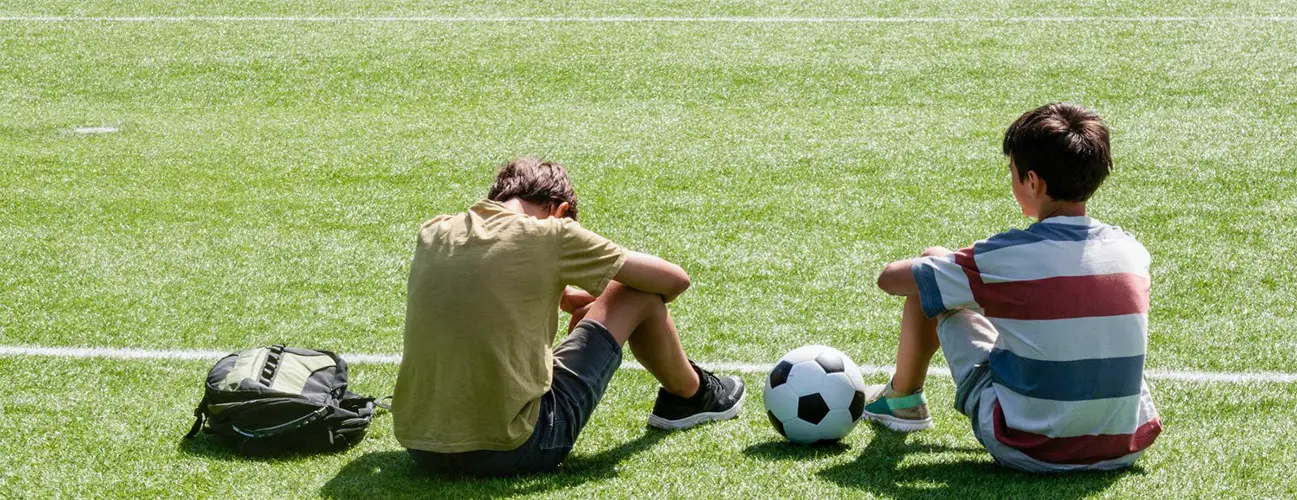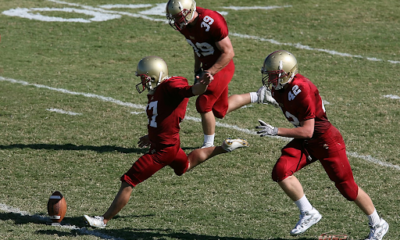
Playing football while pursuing an education is no easy feat. Student-athletes face unique challenges that demand resilience, discipline, and effective time management. This article delves into the mental and physical hurdles these young individuals must overcome to excel both on the field and in the classroom. Academized.com dissertation writing service helps students balance their athletic and academic commitments by providing professional writing assistance, allowing them to focus on their training and studies without compromising their academic performance.
Intense Physical Demands
- Rigorous training regimens
- High risk of injuries
- Maintaining peak physical condition
Football is a physically demanding sport that requires players to push their bodies to the limit. Student-athletes must endure grueling training sessions, weight lifting, and conditioning drills to maintain their strength, agility, and endurance. The risk of injuries, such as concussions, sprains, and fractures, is ever-present, which can lead to missed classes and setbacks in academic performance. When researching the best essay services review, students can find reliable writing support to help them stay on track with their coursework during challenging times.
Time Management Struggles
Example: Imagine a student-athlete’s typical day – they wake up early for practice, attend classes, study during breaks, and then head back to the field for more training. Finding a balance between academic responsibilities and athletic commitments can be a constant juggling act.
Managing time effectively is crucial for student-athletes. They must prioritize their schedules, plan ahead, and ensure they allocate sufficient time for studying, attending classes, and participating in team activities. Failing to strike this delicate balance can lead to burnout, poor academic performance, or neglecting their athletic development.
Psychological Pressures
Dealing with Stress and Anxiety
Student-athletes often face immense pressure to perform at their best, both academically and athletically. The fear of failure, disappointing coaches, teammates, or family members can take a toll on their mental well-being. Stress and anxiety can manifest in various forms, such as difficulty concentrating, loss of motivation, or even depression.
Comparison Table: Mental Health Challenges
| Challenge | Potential Impact |
| Performance Anxiety | Decreased focus, fear of failure, self-doubt |
| Injury-related Setbacks | Frustration, depression, loss of confidence |
| Balancing Multiple Roles | Burnout, neglecting personal relationships or self-care |
| Public Scrutiny | Negative self-perception, social anxiety |
It is crucial for student-athletes to prioritize their mental health and seek support when needed. Counseling services, mindfulness practices, and open communication with coaches and mentors can help them navigate these challenges and maintain a positive mindset.
Maintaining Healthy Habits
- Proper nutrition
- Adequate sleep
- Avoiding substance abuse
“Take care of your body. It’s the only place you have to live.” – Jim Rohn
Maintaining a healthy lifestyle is essential for student-athletes to perform at their best. Proper nutrition fuels their bodies and aids in recovery, while adequate sleep helps them recharge and stay alert during classes and practices. Additionally, avoiding substance abuse, such as alcohol and performance-enhancing drugs, is crucial for their physical and mental well-being, as well as their athletic eligibility.
Support Systems and Resources
- Coaches and mentors
- Academic advisors
- Tutoring and study groups
- Sports psychologists
Student-athletes need a strong support system to help them navigate the challenges they face. Coaches and mentors can provide guidance, motivation, and strategies for time management and stress reduction. Academic advisors can assist with course selection and ensure they meet eligibility requirements. Tutoring services and study groups can aid in maintaining academic excellence, while sports psychologists can offer coping mechanisms for performance anxiety and other mental health concerns.
Practical Example: Overcoming Adversity
Samantha, a star player on the university’s soccer team, had always excelled academically and athletically. However, during her junior year, she suffered a season-ending knee injury that required surgery and extensive rehabilitation. Feeling overwhelmed and discouraged, Samantha sought support from her team’s sports psychologist. Through counseling sessions and mindfulness techniques, she learned to reframe her mindset and focus on her recovery. With the help of her support system, including her coaches, teammates, and academic advisors, Samantha was able to maintain her academic standing while undergoing physical therapy. Her resilience and determination paid off, and she returned to the field stronger than ever, both mentally and physically.
Conclusion
Student-athletes face numerous mental and physical challenges as they strive to balance their academic pursuits with their athletic endeavors. From intense physical demands and time management struggles to psychological pressures and maintaining healthy habits, these individuals must navigate a complex landscape. By recognizing these challenges and providing adequate support systems and resources, educational institutions and athletic programs can empower student-athletes to thrive both on and off the field, fostering their overall well-being and success.









